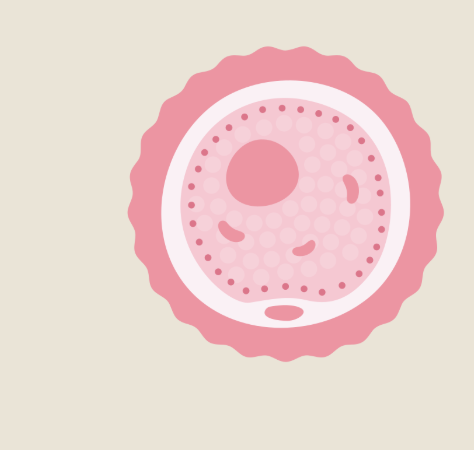Egg health isn’t just about your ovaries… Your vaginal microbiome may be playing a bigger role than you think.
Why your vaginal microbiome is important
Your vaginal microbiome is a key part of your immune system and natural defence system.
When balanced, it helps to protect your reproductive health, fighting off pathogens and preventing inflammation.
When imbalanced it can lead to a whole range of concerns including: higher risk of BV, thrush & STIs. These can have negative implications for your fertility and general reproductive health.
1.Inflammation
An imbalanced vaginal microbiome can lead to chronic, low-grade inflammation. This inflammation doesn’t always stay local—it can influence the uterine environment and even affect the ovaries.
- Inflammation can impair follicular development, which is key to producing healthy, mature eggs.
- It may also interfere with hormonal signalling, particularly with hormones like LH and FSH, which are crucial for egg maturation and ovulation.
2.Ascending infections
In some cases, an imbalanced vaginal microbiome may allow harmful bacteria to travel upward into the uterus, fallopian tubes, and even the ovaries.
- This can result in subclinical infections (low-grade infections without clear symptoms), which can cause damage to the reproductive organs and potentially affect ovarian reserve or disrupt ovulation cycles.
3.Hormonal regulation
A healthy vaginal microbiome may support better oestrogen metabolism. Oestrogen helps maintain a protective, lactobacillus-rich vaginal environment, and in turn, a stable microbiome helps regulate oestrogen-sensitive functions.
- Disruptions in this feedback loop can alter hormonal balance, which has a direct knock-on effect on egg maturation and quality.
The research
Emerging studies show that women with a Lactobacillus-dominant vaginal microbiome tend to have higher success rates with IVF and other fertility treatments. It’s thought that a balanced vaginal ecosystem may support better implantation conditions and reflect an overall healthier reproductive environment—including the ovarian environmentwhere eggs mature.
What can I do?
There are ways to support your microbiome, which include:
- avoid douching
- wear breathable underwear (cotton)
- tailor your diet to be ‘vaginally friendly’ such as kefir & garlic
- screen for imbalances (especially if trying to conceive, so you can receive targeted & individualised care)
- take clinically backed vaginal probiotics (when needed)
What does ScreenMe test for?
ScreenMe screens every species present in your microbiome using gold-standard, NGS technology.
Our tests are 99.9% accurate so if it is there, we will spot it!
This includes species such as: Ureaplasma, Prevotella species, Gardnerella, and much, much more (with a database of over 500,000 species)!
Conclusion
While the ovaries themselves don’t have a microbiome, the vaginal microbiome reflects overall reproductive tract health.
When it’s in balance, it helps maintain a low-inflammatory, hormone-supportive environment that’s more conducive to healthy egg development and fertility. An imbalanced microbiome, on the other hand, could be a hidden factor impacting egg quality, ovulation, and long-term reproductive health.
Fariba Khonsari



